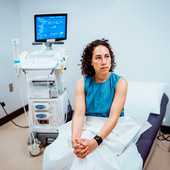Methods for Policy Research
What are the best methods for determining if programs, policies, or practices are effective? How do we integrate qualitative and quantitative data to deepen our understanding of social issues? This research area is rooted in the work of the Statistics for Evidence-Based Policy and Practice (STEPP) Center, which serves practitioners and policymakers by developing and promoting state-of-the-art research methods in the applied social sciences. Faculty in this area develop methods for generating strong evidence, synthesizing the results of multiple studies, and translating findings to inform policy and practice.
A Message From Larry Hedges and Elizabeth Tipton, Co-Program Chairs and STEPP Co-Directors


Working Papers
Recently published articles and working papers in this program area include:
Andrew Dillon, Steven Glazerman, Dean Karlan, and Christopher Udry. 2025. Pre-Survey Messaging to Improve Response: Appeals to Authority, Self-Interest, and Salience (WP-25-12).
Lorenzo Franchi, Vladimir Atanasov, Mark Stake, Garrett Bates, Kristen Osinski, John Meurer, and Bernard Black . 2024. The Disappearing COVID-Naïve Population and Comparative Roche vs. Abbott Test Sensitivity: Evidence from Antibody Seroprevalence in Milwaukee County, Wisconsin (WP-24-32).
Jeff Dominitz and Charles F. Manski. 2024. Accounting for Nonresponse in Election Polls: Total Margin of Error (WP-24-22).
Faculty Experts
This collaborative group of interdisciplinary scholars stems from statistics, economics, education, political science, and other social science fields.
Events
There are no upcoming events at this time.



